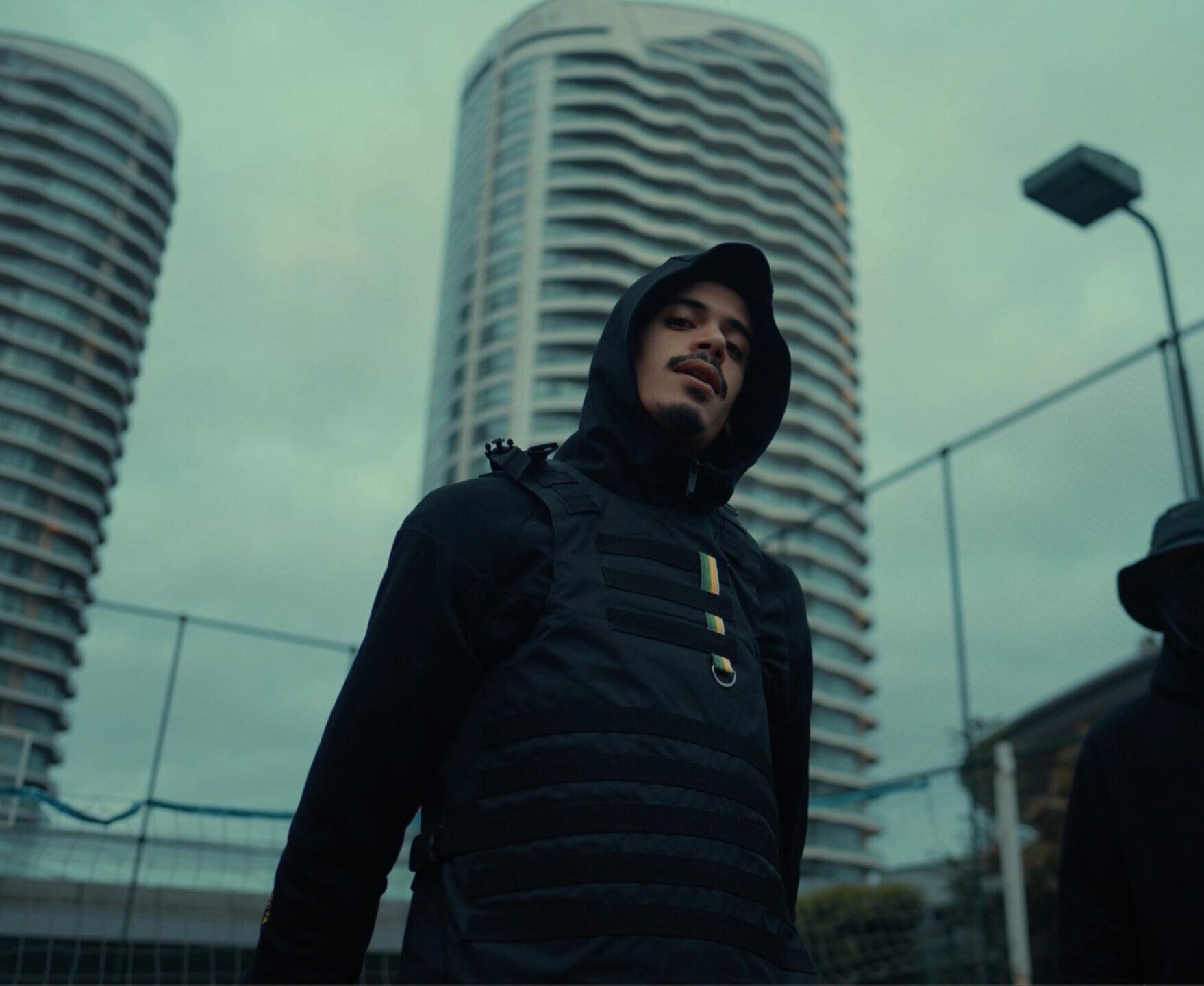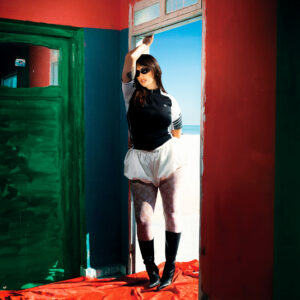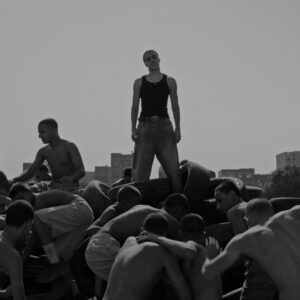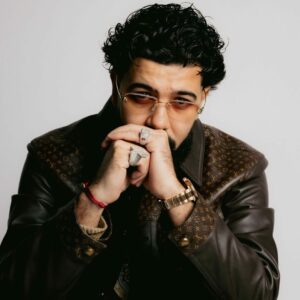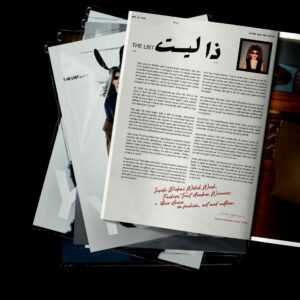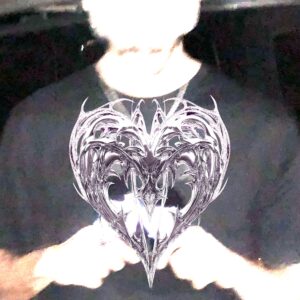Libya is waking up, with an energy that’s as much about hope as it is about resolve. Tunisia’s music scene hums, as if waiting for the right moment. Algeria and Sudan are primed for a renaissance. Egypt holds steady. And Morocco is spilling over with talent, ambition, and hunger. North Africa is currently reshaping itself in real time.
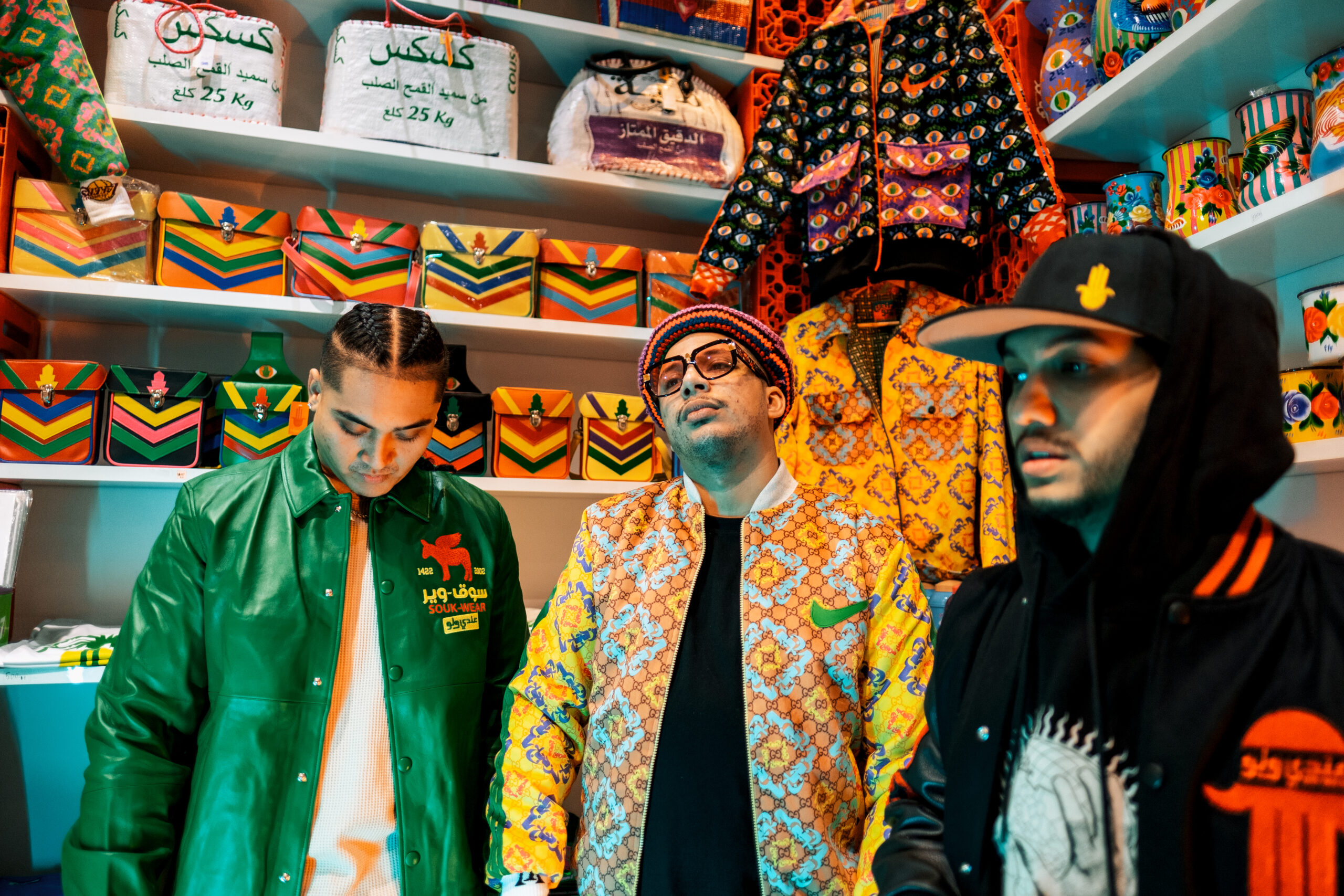
There is something deeper at play here. There’s a sort of cultural reclamation happening – a collective effort to pull our creativity out of the margins and into the centre of the conversation. The NORF Tape – a 16-track compilation gathering a good chunk of North Africa’s leading talents – is not just a byproduct of this energy. It’s a catalyst in many ways. It’s about rejecting how North African culture has been boxed in, commodified, or simply overlooked, often reduced to static artifacts rather than living, breathing expressions.
“It is about unity definitely, but also much more than that,” explains NORF’s founder, Yaseen Al-Abbar, who along with partners Rachid Jebari and Omar Lamrabat runs the popular Norf Africa music curation platform.
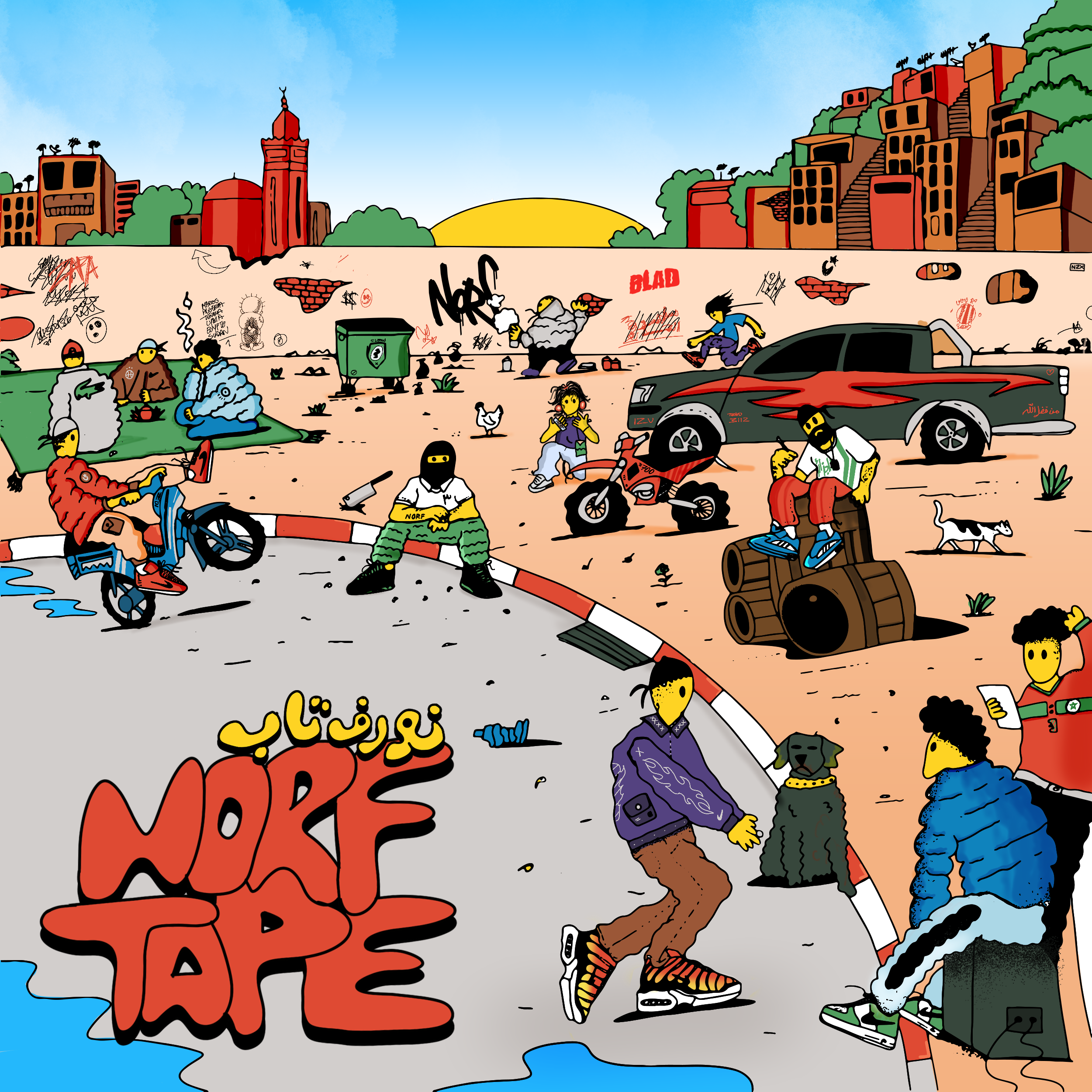
“We wanted to put out good music, sure, but also something with a spirit,” he says. “This is a celebration of our people, how we exist in reality. We want to encourage the spirit of being an active participant in our culture.” It’s more of a cultural moment, a piece of history that belongs equally to the artists who created it and the listeners who engage with it.
“Unfortunately, we are taught to see our culture as something that is in a glass case in our parents’ house—not belonging to us and not meant to be touched,” he adds. “We reject that. We want to re-centre ourselves as the culture. Only with this shift in attitude can we guide our future and realize our agency.”
It’s an ambitious vision, but The NORF Tape makes it feel entirely achievable. The mixtape, released in late 2024, is the result of years of groundwork by NORF, a platform founded in 2019 with a mission to support North African music—be it through spotlights on the platform, artist management in the early days and now full-on music production. What began as a curatorial effort quickly evolved into something much bigger: a space for collaboration, experimentation, and the creation of entirely new stories and ways of interacting with our culture and each other.
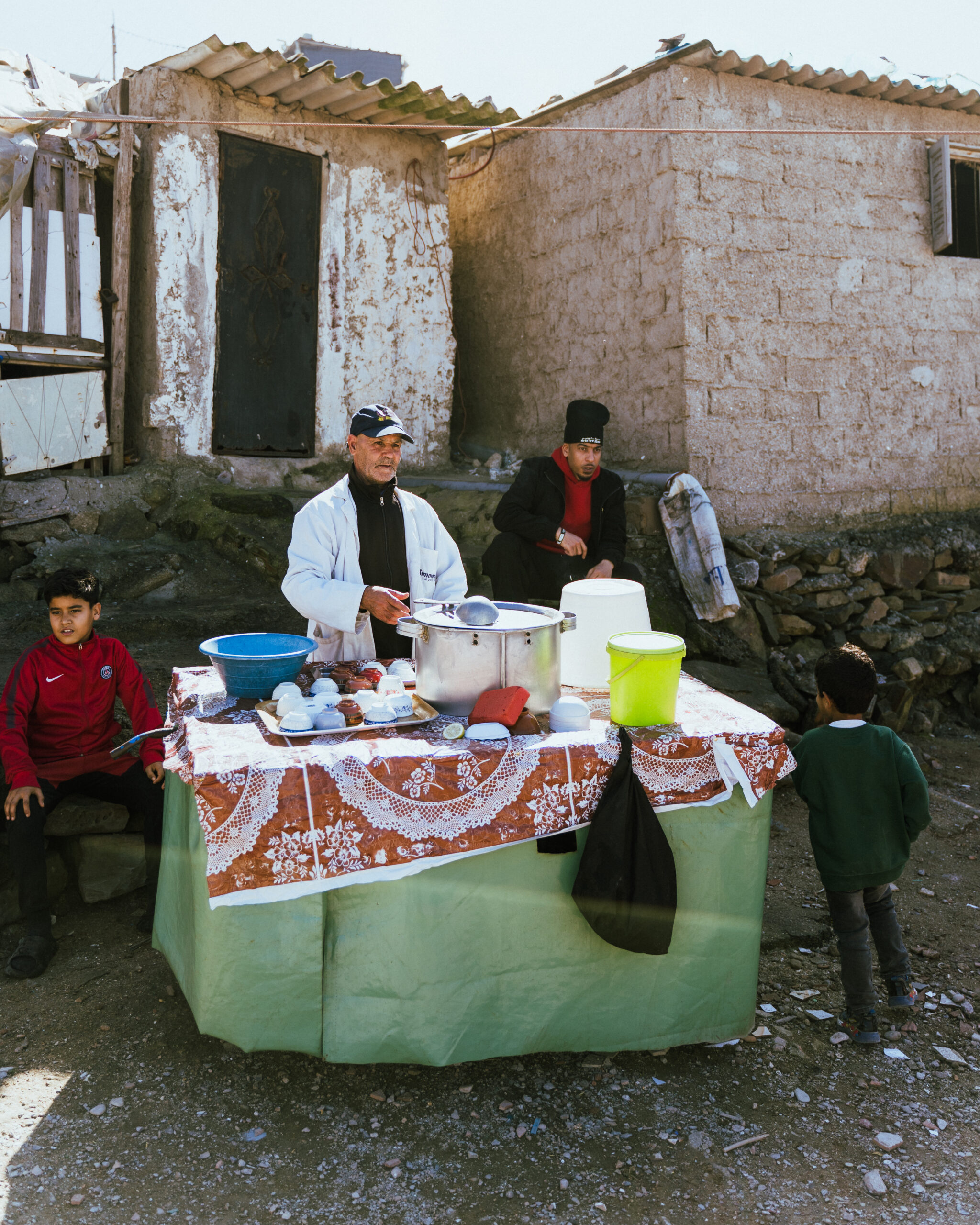
For NORF’s founder, The NORF Tape was always in the cards. “We knew from the start we’d end up releasing music,” he says. “The curation we’d been doing gave us a large network of artists with whom we had been interacting with over the years,” he explains. “This gave us an almost encyclopedic knowledge of the scenes from country to country, and writing about the music fine-tuned how we understood their work and their respective histories.” Having managed artists like Young Moe and Nader Khalil in the background, NORF saw the mixtape as the next natural step.
The story of The NORF Tape began in 2022 with an artist residency in Morocco. It was the kind of chaotic brilliance that can only happen when ambition outpaces resources. Over the course of one week, more than 25 artists passed through a rented house turned makeshift studio. “We just figured it out,” Norf’s founder recalls. What started in that house became a sprawling, two-year effort to piece together The NORF Tape. “We’d get beats, decide what we liked, and think about who would make sense on them,” he explains. Submissions came in from all over—more than 50 tracks in total. Each one was a puzzle: proposing ideas to artists, receiving verses, revising, and ultimately deciding whether a track made the cut. “We had to whittle it down to 16,” he says.
The goal was clear: create something that felt cohesive but expansive. It should be rooted in hip-hop but not afraid to stray. “We were deliberate in inviting certain acts knowing they would diversify the sound—like Hady Moamer’s ‘Batshad,’ for example,” he adds. “We wanted to give equal shine to established and emerging acts, centreing the Arabic language throughout.”
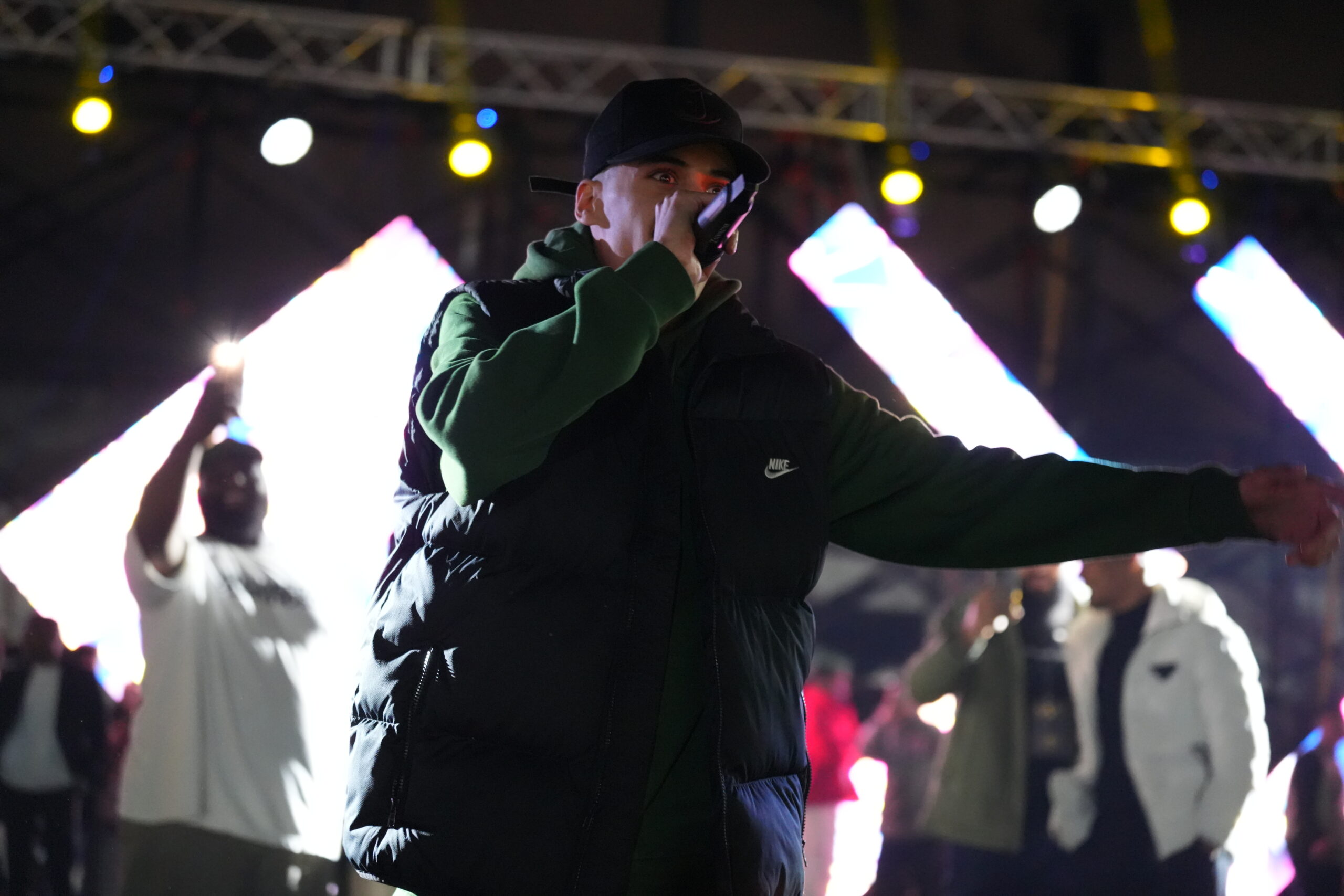
Ka7la’s “Amach” is the anchor of the mixtape. To understand Ka7la is to understand Benghazi, as Norf explained on the Instagram release of Ka7la’s track. The city carries a heavy history he says, from its role in resistance movements to its ties to Bedouin poetic traditions like shi3r sha3bi.
Ka7la’s guttural delivery mirrors the cadence of these oral traditions. Its deliberate pauses and emphatic bursts ground his music in a distinctively Libyan sense of identity and storytelling. “Every bar feels intentional, layered with meaning that reveals itself over time,” comments Norf’s founder.
Things picked up for Ka7la in in 2016 when he and Mansor Unknown formed Bermuda Gz, a duo that quickly became legendary in Libya’s underground scene. But after stepping away in 2018, he spent years navigating the challenges of displacement, eventually returning to music in 2020 while living in Istanbul. “Amach”, written during this period, captures the tension of exile and the longing for home. “It’s an honest take on where I was mentally,” Ka7la says. Including him on The NORF Tape wasn’t just a creative decision—it was essential to Norf. “Ka7la was important to include, not only for his incredible talent but because of what he represents to Benghazi,” he explains.
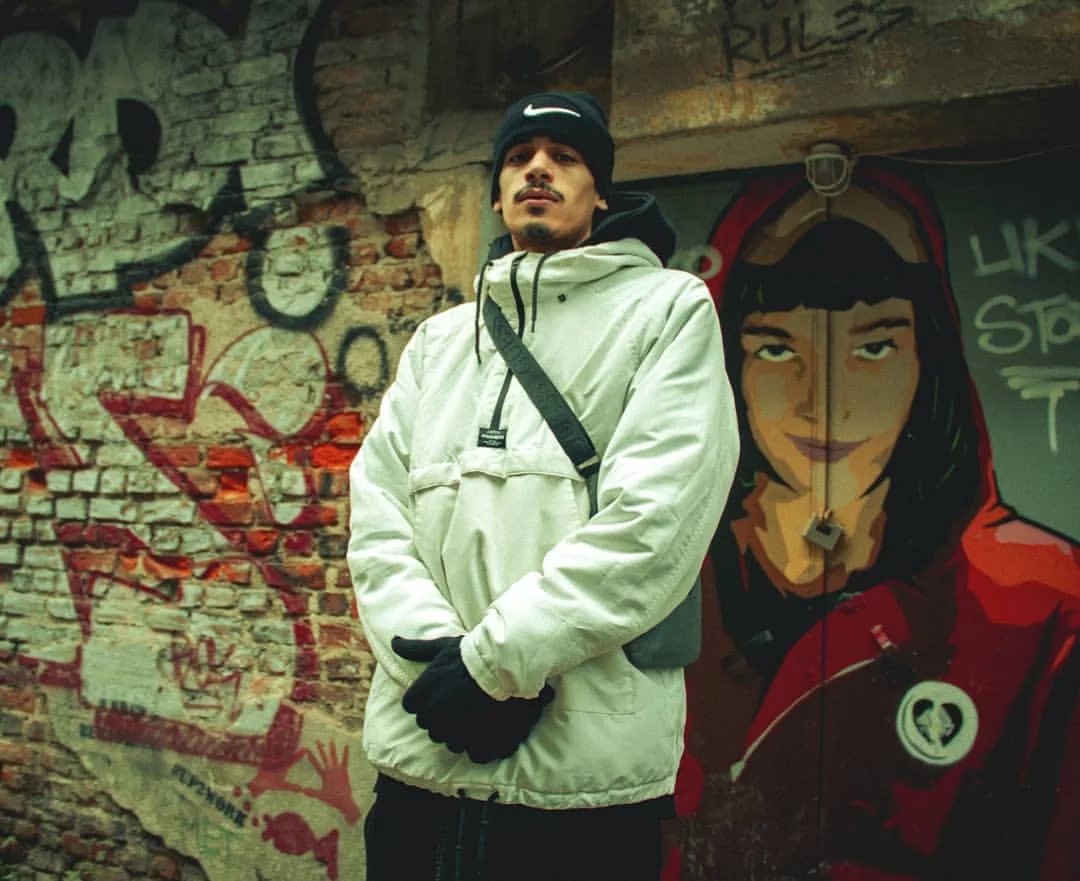
“The NORF Tape is a really unique project,” he reflects. “Listening to it is an absurd and beautiful experience. From beginning to end, you are weaving in and out of five different dialects, not to mention varying genres—from post-punk to 2-step to trap to indie pop.”
What makes The NORF Tape so compelling is the intentionality behind it. Every decision feels deliberate.
“We prioritized the music over everything, and everyone that is on the tape was invited because of their strong and innovating identity,” he says. The result is an album that not only captures a moment but creates one—a slow burn that reveals new layers with every listen.
There’s more music like this waiting for you to discover, here.
